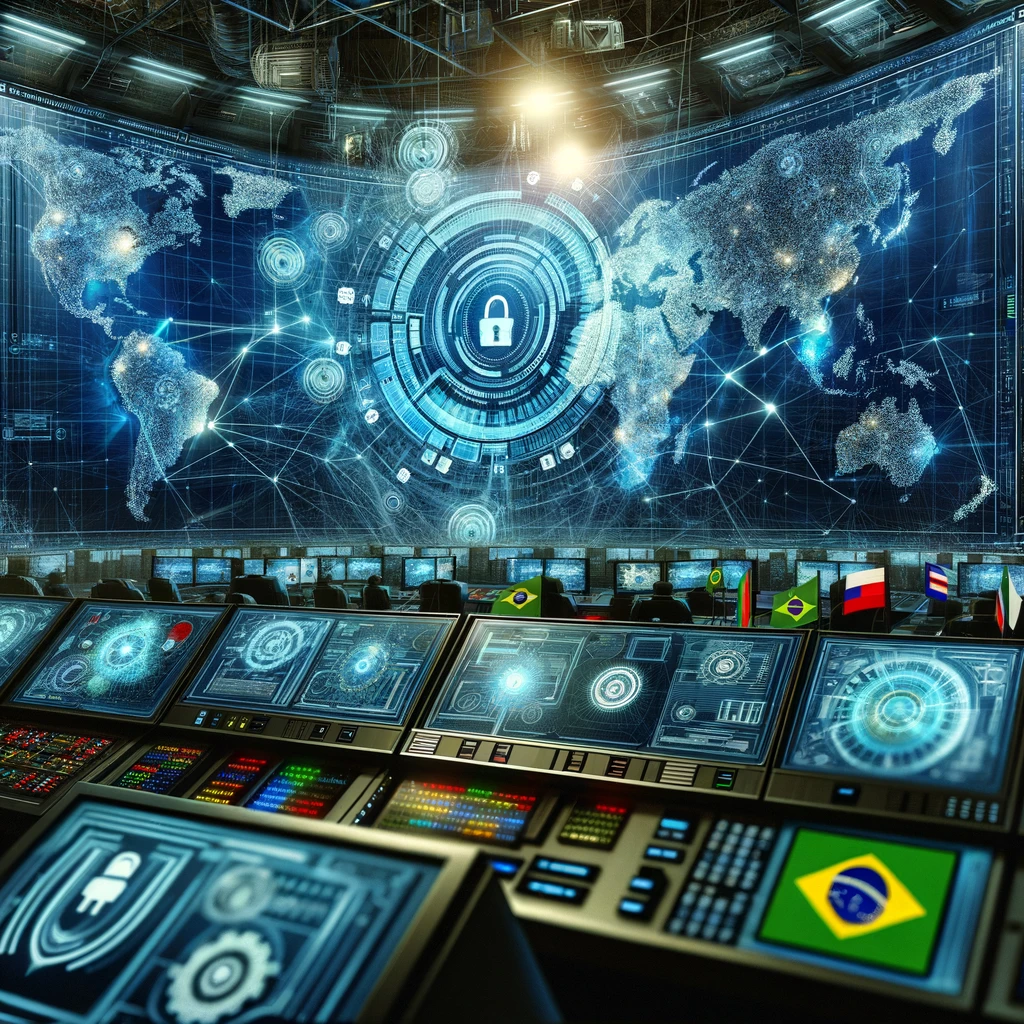
In the contemporary global scenario, cyberspace has emerged as a domain of critical importance, shaping not only interpersonal relationships but, crucially, geopolitical and geoeconomic interactions. Information security, once relegated to the technical backstage, today it occupies center stage in discussions about national sovereignty, economic development and diplomacy. The need for global governance for cyberspace is, therefore, an imperative that can no longer be ignored, especially in Brazil, a growing player on the international board.
Global digital transformation knows no borders; data crosses continents in milliseconds. In this context, cybersecurity incidents have the potential to cause large-scale disruption, affecting everything from critical infrastructures to the integrity of democratic processes. Increasing dependence on digital networks increases vulnerability to cyber attacks, that have become tools of political and economic coercion, placing information security high on the international agenda.
The discussion on the global governance of cyberspace is fraught with complexities. It involves not only technical issues, but also ethical dilemmas, legal and political. Attempts at global regulation face challenges, including the diversity of political regimes, the different levels of technological development and disparities in cyber defense capabilities. Yet, Engagement in multilateral forums and international collaboration are fundamental to establishing common norms and standards that promote a safe and stable cyberspace.
To Brazil, The cyberspace landscape offers both challenges and opportunities. As an emerging and leading economy of the Global South, the country has the chance to shape discussions on cyber governance, advocating for a more inclusive digital environment, safe and equitable. Brazil must prioritize strengthening its cybersecurity infrastructure, investing in technology, professional training and international cooperation. The promotion of multilateral and democratic cyber governance is aligned with the principles of Brazilian foreign policy, favoring sustainable development and regional stability.
Besides that, Brazil must take advantage of its strategic position to mediate dialogues between the Global North and South, promoting mutual understanding and building bridges for inclusive cyber governance. This implies active participation in international organizations, like the UN, and specific cybersecurity forums, in addition to partnerships with other developing countries to share knowledge and resources.
The implementation of public policies that encourage research and development in information security is another critical action. The establishment of centers of excellence and collaboration with the private sector can boost innovation and prepare Brazil not only to defend itself against cyber threats, but also to become a protagonist in the global security technology market.
Cyberspace is the new battleground of global geopolitics. To Brazil, Investing in information security is not just a matter of national protection, but also an opportunity to strengthen your position on the international stage, contributing to the construction of a safer and fairer digital environment for everyone. The global governance of cyberspace, based on dialogue and cooperation, is the way to go, and Brazil has a vital role to play in this process.
